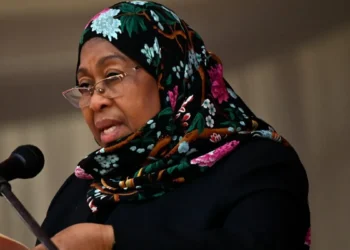FAO Director-General, QU Dongyu highlighted the important role that bees and other pollinators play in ensuring ecosystems services, food security, nutrition, and livelihoods. As a result, the FAO has called for further collaboration to safeguard biodiversity and strengthen agriculture and food systems through bees and other pollinators.
“The 2030 Agenda calls for the eradication of hunger and poverty. We need food systems that are more efficient, inclusive, resilient and sustainable. Bees play a major role in that. They are important to our food security, nutrition and the environment”.
Meanwhile, the FAO Director-General revealed that “the value of pollination services to global food production is worth up to USD 600 billion annually”.
Also, the FAO Boss stated that FAO is leading the global celebrations of the 2021 International Year of Fruits and Vegetables (IYFV). Furthermore, he said that this year “is particularly important to highlight the role of pollinators for fruits and vegetables”.
The IYFV 2021 is a unique opportunity to raise awareness on the important role of fruits and vegetables in human nutrition, food security and health.
Role of pollinators
According to FAO, three out of four leading food crop types across the globe depend on pollinators. However, in many regions, bees and other wild pollinators such as birds, bats, butterflies and beetles are declining in abundance and diversity. Meanwhile, FAO indicated that most of these drivers are manmade. The absence of pollinators would majorly affect coffee, apples, almonds, tomatoes and cocoa.
Furthermore, FAO stated that pollination is not only crucial to ensure food security but can also help diversify livelihoods of smallholder farmers. These are people who have suffered the impacts of the COVID-19 pandemic.
According to FAO, COVID-19 recovery activities can also decrease drivers of biodiversity and ecosystem loss. This will help lower pandemic risks while safeguarding our pollinator communities.
Moreover, FAO indicated that habitat degradation, agricultural expansion and unsustainable intensification are the drivers of Pandemic risk. Also, they “negatively impact pollinator communities”.
Strengthening Collaboration
Also, QU and Jeff Pettis, the President of the World Federation of Beekeepers’ Associations signed a Memorandum of Understanding (MoU). The MoU builds on more than 60 years of collaboration. As a result, it aims at strengthening the collaboration between FAO and Apimondia for sustainable beekeeping.
Meanwhile, there was particular emphasis on leveraging the development resources that beekeeping offers to address crucial issues affecting rural communities. This will allow the two organizations to synergize and assist countries in achieving the SDGs. At the same time, it will help in promoting and protecting bees and pollinators.
The formal World Bee Day observance concluded with closing remarks from Beth Bechdol, FAO Deputy Director-General. She thanked the Republic of Slovenia, Apimondia and all the speakers for their valuable contributions.
Also, Bechdol echoed the Director-General’s earlier words by underlining the unique and irreplaceable pollination services bees provide. Thus, supporting peoples’ livelihoods and the planet. Moreover, she said “we all have a role to play in protecting bees and other pollinators to safeguard biodiversity and strengthen agri-food systems”.
READ ALSO: DBG requires no branch network – Ofori-Atta



















